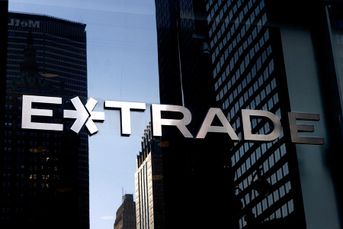Looking for yield at a fair price? Try preferred stock from closed-end funds
Some closed-end income funds still trade at a discount.
Looking for yield in a closed-end fund these days is like buying a pen at Tiffany’s — you’ll get what you’re looking for, but you’ll pay an awful lot for it.
But the preferred stock offerings of many closed-end funds could be a lucrative way to get yield at a reasonable price.
Closed-end funds, unlike their garden-variety open-end cousins, issue a set number of shares that trade on the stock exchange. Their share price can trade either above the value of their holdings (a premium) or below it (a discount).
Not surprisingly, many of the closed-end income funds with the highest yields are selling for big premiums. PIMCO High Income (PHK), for example, has a 12-month yield of 14.85%, but is selling for $9.66 a share — a hefty 45.92% premium over the fund’s net asset value of $6.62 per share.
Buying closed-end fund at a premium doesn’t always end in wailing and gnashing of teeth, but it’s never good to pay too much for any investment. And, since many closed-end funds use leverage to boost their yield, overpaying for a leveraged investment can mean a long ride on the road to remorse.
To get that leverage, some funds issue preferred stock, noted Erik Herzfeld, president of Thomas J. Herzfeld Advisers in Miami Beach, Fla.
And those bonds can be a good bet. “It’s the most overlooked part of the industry that provides the best yield,” he said.
Closed-end funds can either borrow through a line of credit or through preferred shares. The advantage to preferred shares: “In a crisis situation, they don’t have to deal with a bank,” Mr. Herzfeld said. Basically, the preferred shares act much like bonds, and some closed-end preferred stocks have maturities of five to 10 years.
One example: Oxford Lane Capital Preferred (OXLCN), which yields 7.85%. Oxford Lane Capital (OXLC) is a closed-end fund that invests in collateralized loan obligations.
Or consider the preferred stock for Gabelli Convertible and Income Securities fund (GCV), which trade under GCV.PRB. The Series B shares have a 6% coupon rate and currently yield 5.71%. The bond is perpetual, meaning it has no set maturity date.
For those who prefer closed-end funds, some are still selling at substantial discounts.
“In general, the fixed income funds on the credit side are more interesting than those on the traditional government bond fixed-income side,” Mr. Herzfeld said.
Emerging-market debt funds are selling at some of the steepest discounts. For example, MS Emerging Markets Debt (MSD) currently sells for a 14.21% discount and yields 5.67%. Another: Legg Mason BW Global Income Opportunities (BWG), which sells at a 14% discount and yields 5.98%.
For those who prefer U.S. high yield, First Trust Strategic High Income II (FHY) sells at a 13.87% discount and yields 7.61%. Avenue Income Credit Strategy (ACP), a bank-loan fund, sells at a 12.21% disount and yields 9.06%.
Learn more about reprints and licensing for this article.








